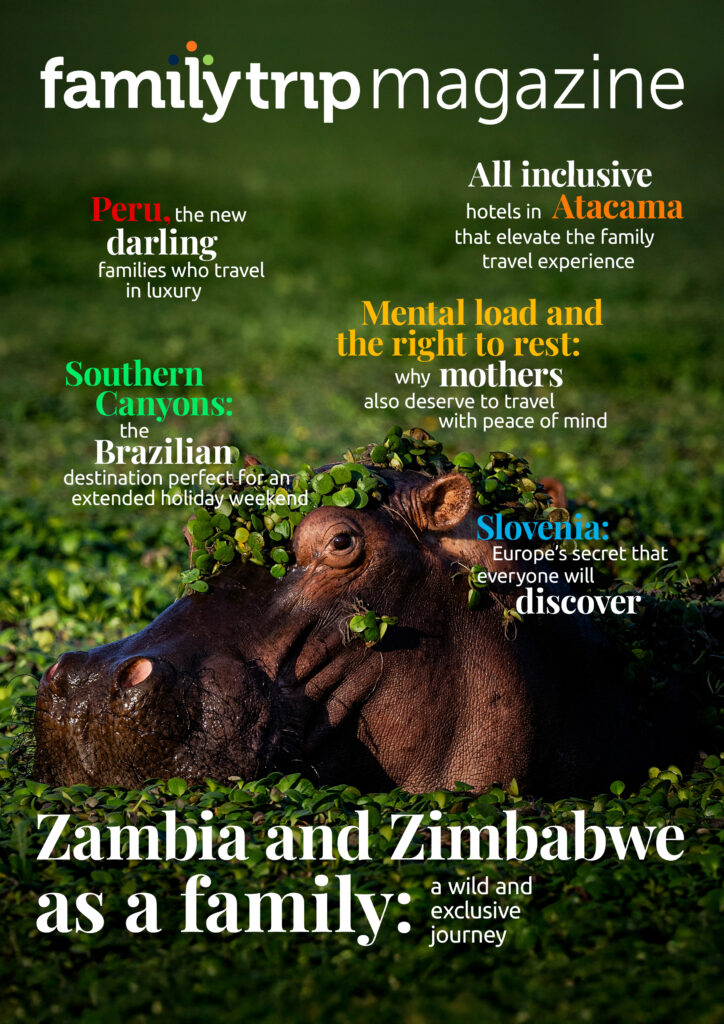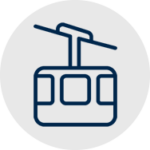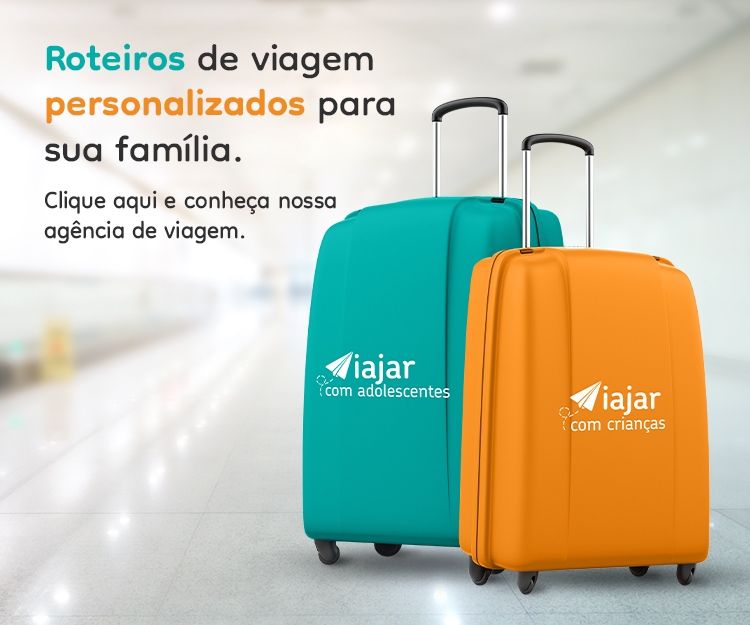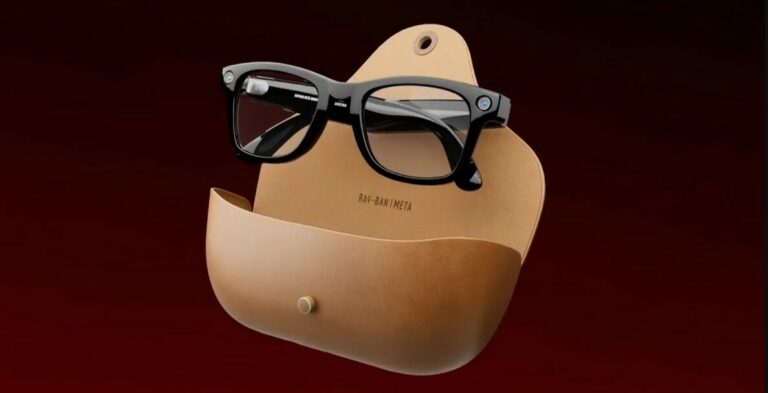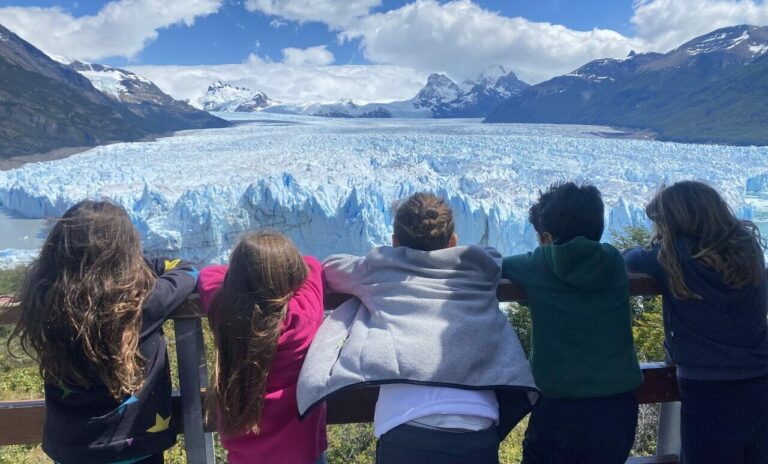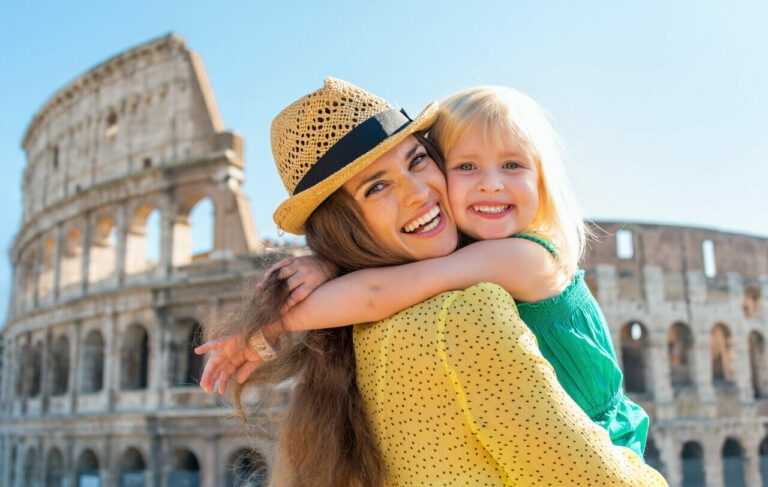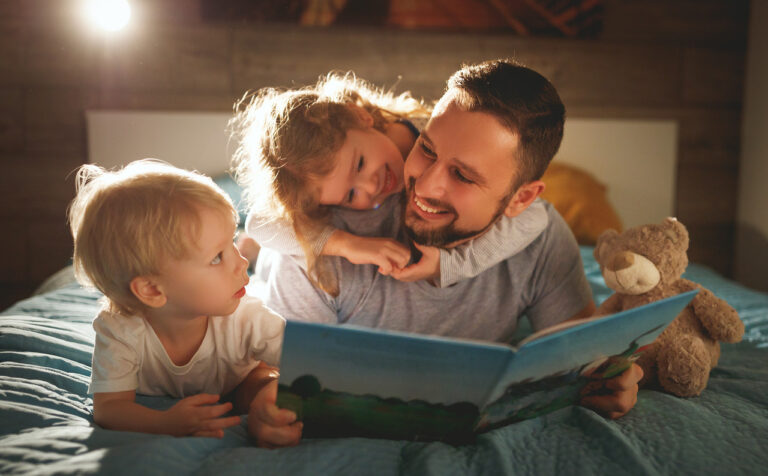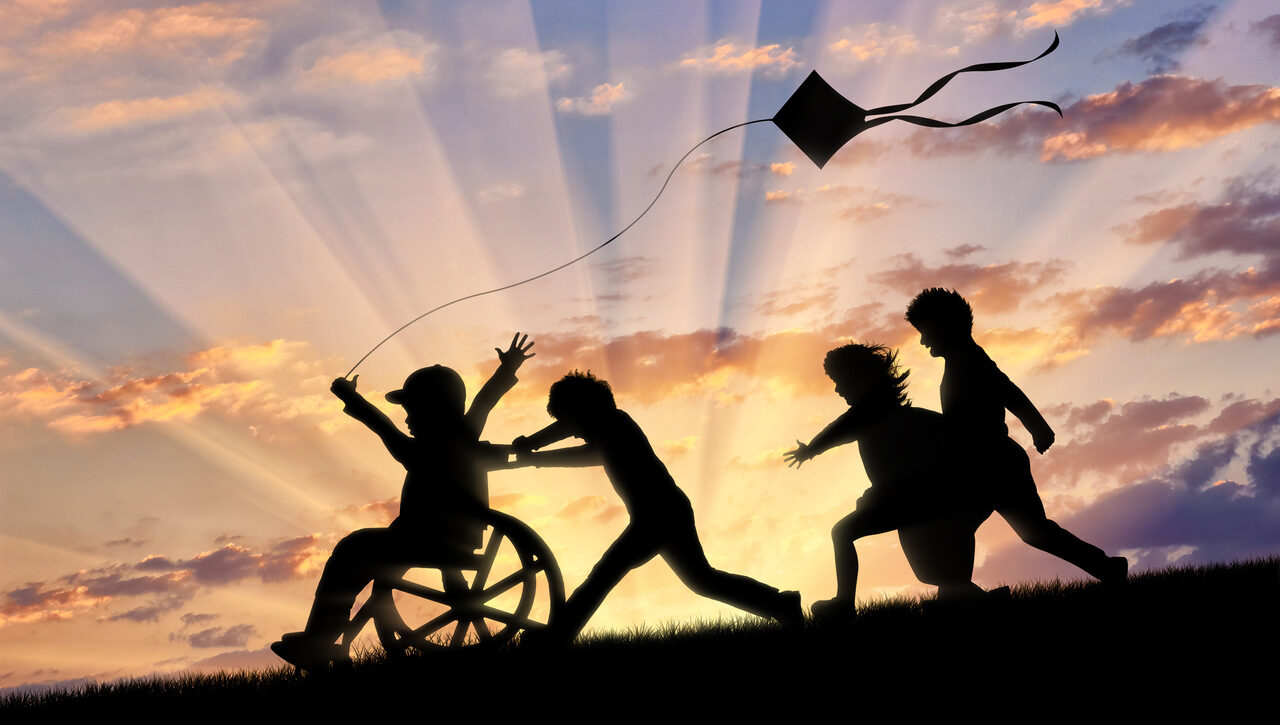
Traveling is for everyone
Not always is it easy to hit the road, but to show that it's possible, we sought inspiring stories of atypical families in our community.
By Sut-Mie Guibert
A title that may seem overly optimistic, but it’s truly what the Family Trip Magazine community believes: that traveling is for everyone, even when faced with difficulties, be they financial or physical and intellectual. When money is tight, the trick is to tighten the belt, get organized, and embark on creative outings. Every trip counts, even if it’s just through books or close to home!
Now, when someone in the family is a Person with a Disability (PWD), concerns and planning are different and require more care and attention, but the obstacles are not always insurmountable, as we might initially think. We know that despite efforts in the tourism industry to adapt and become more inclusive, many outings and destinations are still not fully prepared. However, this should not deter anyone from traveling.
That’s why we’ve invited families from our community, who have firsthand experience, to share their inspiring stories and experiences, along with their tips and challenges faced in the midst of difficulties that didn’t stop them from traveling.
An Amazon for Everyone
Fabiane is a mother of three girls, Mari, 15, Laura, 11, and Sofia, 9, who has a rare syndrome on the autism spectrum. Sofia, affectionately known as Soso, is level 1 support and has made significant progress after a challenging early childhood marked by respiratory issues. Her parents emphasize the importance of swiftly accepting the diagnosis and being proactive with necessary therapies and actions. They bypassed the “mourning period of diagnosis” to embrace their daughter and celebrate every small victory. Fabiane explains that, being part of a large family, they always prioritized planning, even before their daughter’s diagnosis. Due to her syndrome, certain things greatly bother Sofia, such as crowded and noisy places or remaining still for extended periods. Consequently, they always avoid long flights or, if absolutely necessary, prefer overnight flights where she can sleep.
As such, one of the family’s first international trips was to Orlando, United States, due to its excellent infrastructure and because the theme parks are well-equipped to accommodate people with disabilities. An essential tip from Fabi is that Sofia always travels with a sunflower cord (which, in Brazil, has been mandated by law since July 2023 for identifying hidden illnesses) containing documents and contacts in case she gets lost or disoriented. The cord is now well recognized by airlines, airports, services, and even in the midst of the Amazon!
Sofia particularly enjoyed one trip: exploring the Amazon. With three daughters, the family faced the challenge of finding a destination that pleased everyone while respecting different age groups and preferences. In this context, it was crucial to enlist the help of an agency specialized in children and teenagers to assist with preparation and on-site structure. Traveling in a group with other families allowed the older daughters to play and interact with other children, which was also important for Sofia herself. For a destination like this, having the agency’s support for personalized logistics and organization with a Concierge Guide who could assist with specific needs and have a backup plan to alter your family’s logistics if necessary was crucial.
This was a very different and intense trip for the entire family, to an exotic destination filled with challenging logistics by car and boat. Fabiane notes that for Sofia, it was even more important: “to experience different sensations, a more humid heat, being in a little boat at water level, experiencing different fears than she was accustomed to, seeing dolphins and alligators with bright eyes at night, meeting indigenous people (at this point in the live interview, Sofia begins to mimic the indigenous dance and remembers the steps forward and backward. Then she shows the necklaces she bought). There were moments during the trip when she became disoriented, of course, but, again, since the group was already immersed in that context, everything felt very natural.”
“This trip to the Amazon had a profound impact on the children. Especially being in Brazil and having all that infrastructure that we never imagined we would have. And also because of everything we experienced with it, mainly,” comments Fabiane Machado.
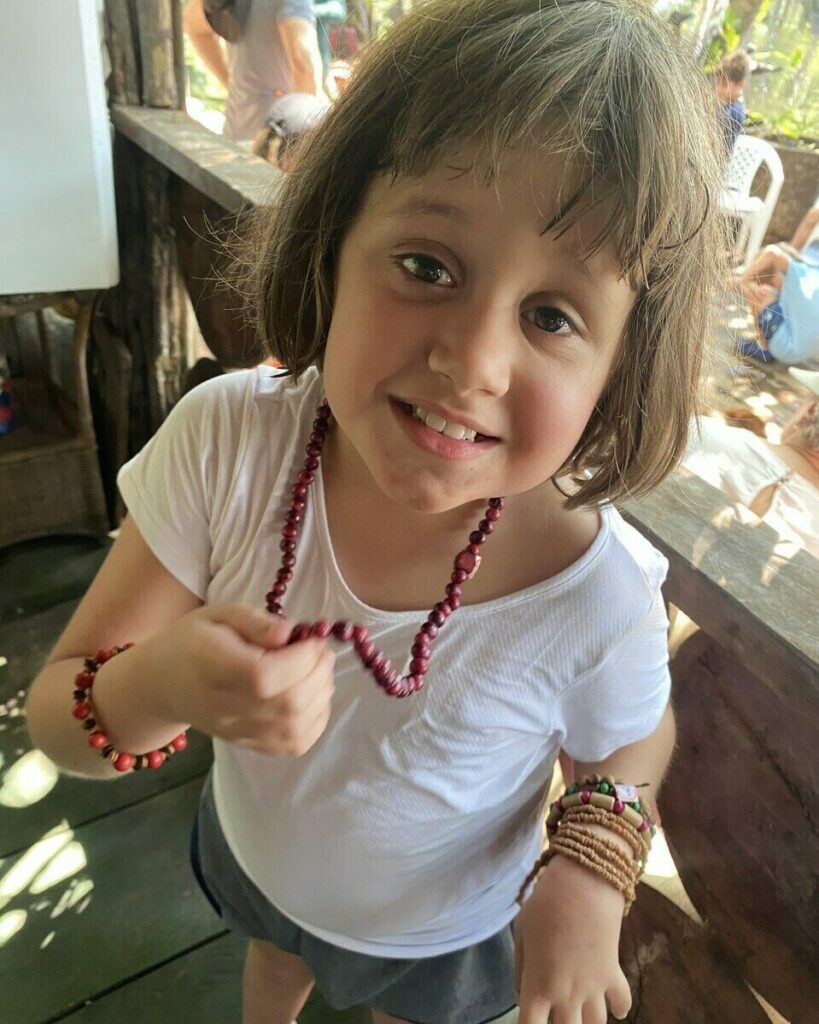
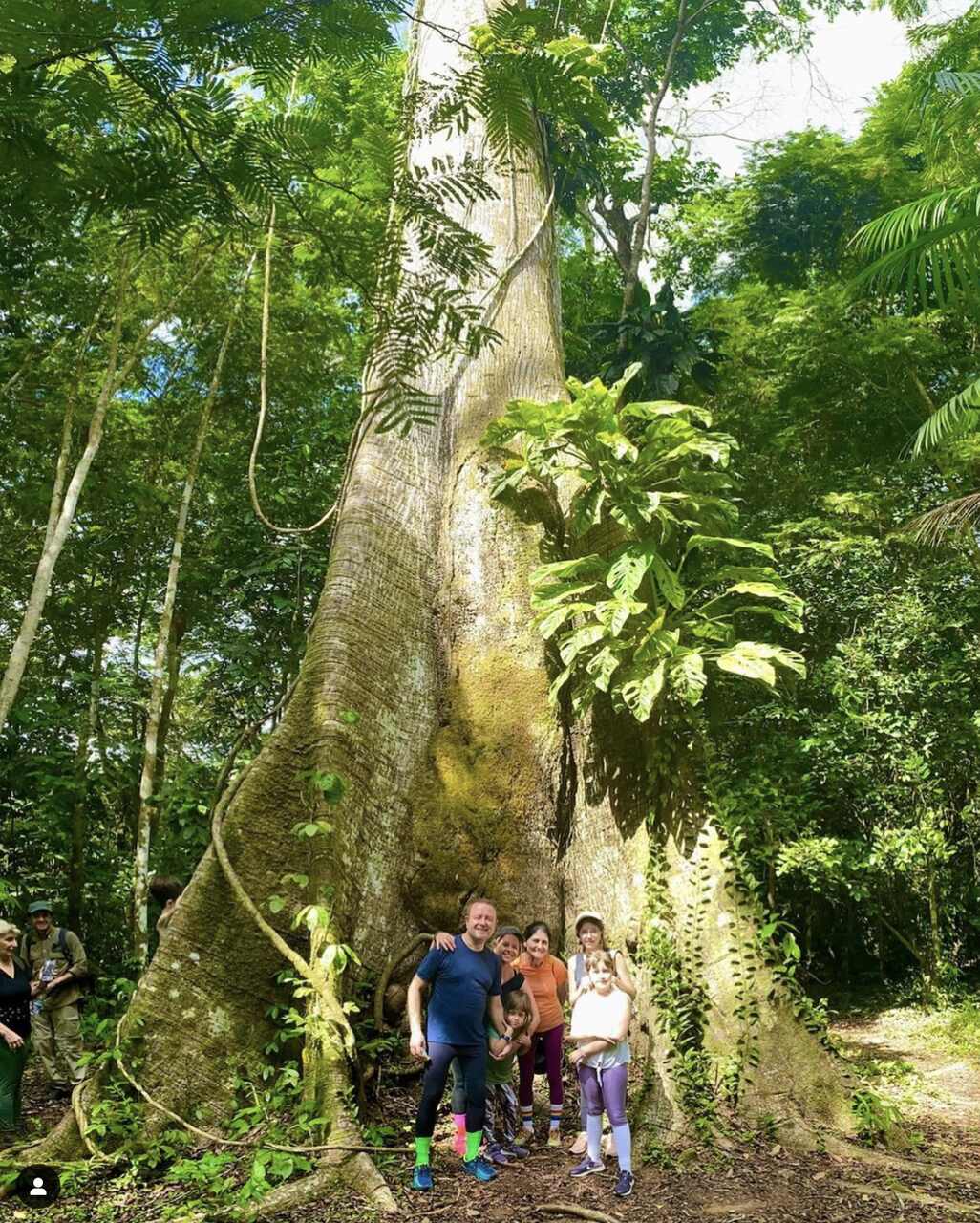
Today Sofia’s autonomy is so encouraged that she has even gone on her first solo camping trip, confident and happy.
Sofia is a child integrated into her family, school, vacations, and life. All her small achievements have always been celebrated so much that today she is already a true traveler!
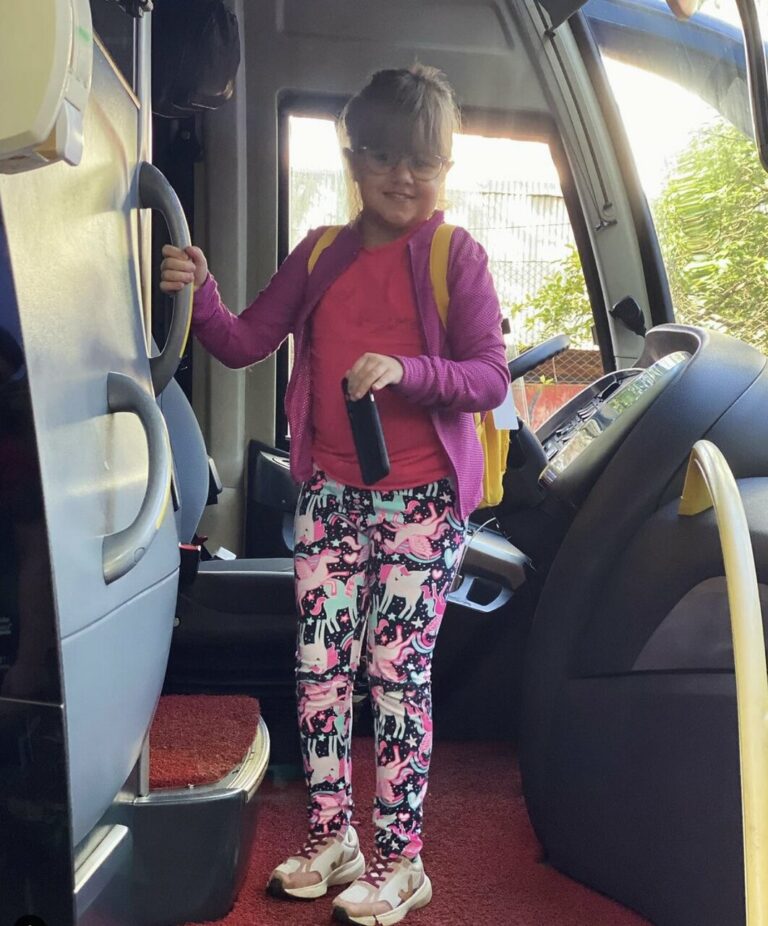
Traveling with a Wheelchair User
The Moreira family lives in Canada, and their eldest son is a wheelchair user. The world is not very well-prepared for people with disabilities, but some countries like the United States and Canada have better infrastructure.
Miriam says that on one hand, everything seems easier there because disabled parking spaces are generally respected, sidewalks are wide and without potholes, every corner has curb cuts…
On the other hand, winters are brutal, so going in and out of the house takes longer, putting the wheelchair in the car, taking it out, transferring the son, etc. And when it snows, everything becomes more difficult and time-consuming until the snow is cleared. Still, the family always enjoyed many outings, taking their son wherever possible.
Of course, there are challenging destinations for him, as he struggles to overnight on a plane, for example, so the family limited flights to daytime flights of up to 5 hours. From Canada, they can go to the Caribbean, the United States, or even within the country itself, as it is a continental country.
Everything also becomes easier when they can rent a car. They have tried renting a motorhome before, but the rental company couldn’t guarantee the vehicle’s layout, only its size. So, they gave up because they couldn’t risk having bunk beds, for example. But in 2020, they rented a very cool houseboat to navigate the Rideau Canal. Since it was close to where they lived, they were able to check the boat before booking the trip.
Their last vacation was also spent on the water, but this time, on a Royal Caribbean cruise. It was 7 days, passing through Costa Maya, Honduras, Belize, and Cozumel.
Cruises have excellent facilities for wheelchair users: everything is flat, with elevators, many restaurants, and onboard entertainment… a true resort on the water, changing countries and landscapes! They love it.
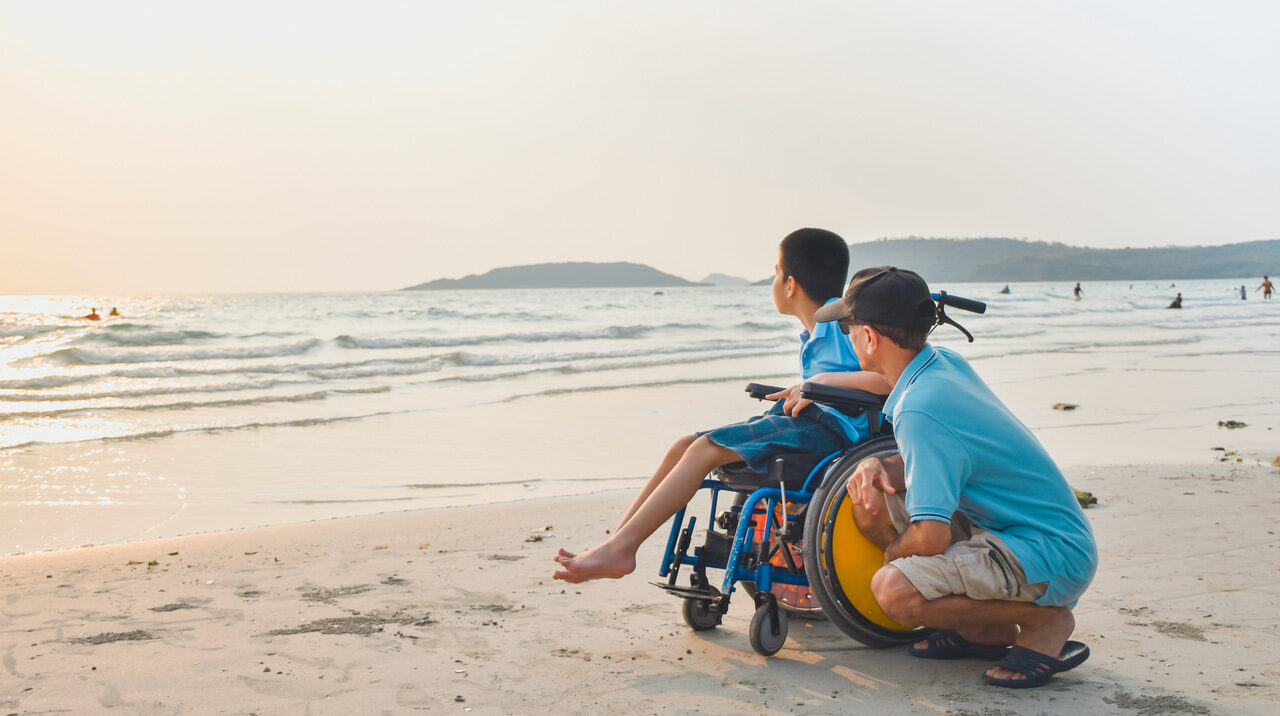
A family of walkers
Luna De Paoli told us that before starting a family, she and her husband were quite lazy and didn’t have the habit of taking sports vacations. However, after the birth of their son with Autism Spectrum Disorder (ASD), they discovered that Lucas was much calmer on nature outings.
They started with many road trips to have more freedom, but now they have been to Torres del Paine (Chile), El Chaltén (Argentina), Chapada dos Veadeiros, Chapada Diamantina, where they did many trails, Atacama Desert with Salar de Uyuni, and even in the Rocky Mountains in Canada! But the place he loved the most was Australia, because of the animals. The family took a trail in a park with koalas and kangaroos, and he fell in love. His hyperfocus is Pokémon, so the couple always brought some themed items. In Australia, they took several small Pokémon and placed them in some places they passed by to keep the boy motivated.
These days, Luna always carries her son’s headphones because there are noises that bother him. When they didn’t know about his diagnosis yet, they visited an indigenous tribe in Swaziland, near South Africa, and the boy was disoriented, he hated it. At the time, they thought it was just a tantrum, but he simply couldn’t stand it. So the family never plans activities in noisy places, and since it’s not always predictable, they now always carry the headphones/noise-canceling headphones.
And believe it or not! Even to Japan, Lucas and his family have already been, because of course: he’s obsessed with Pokémons!
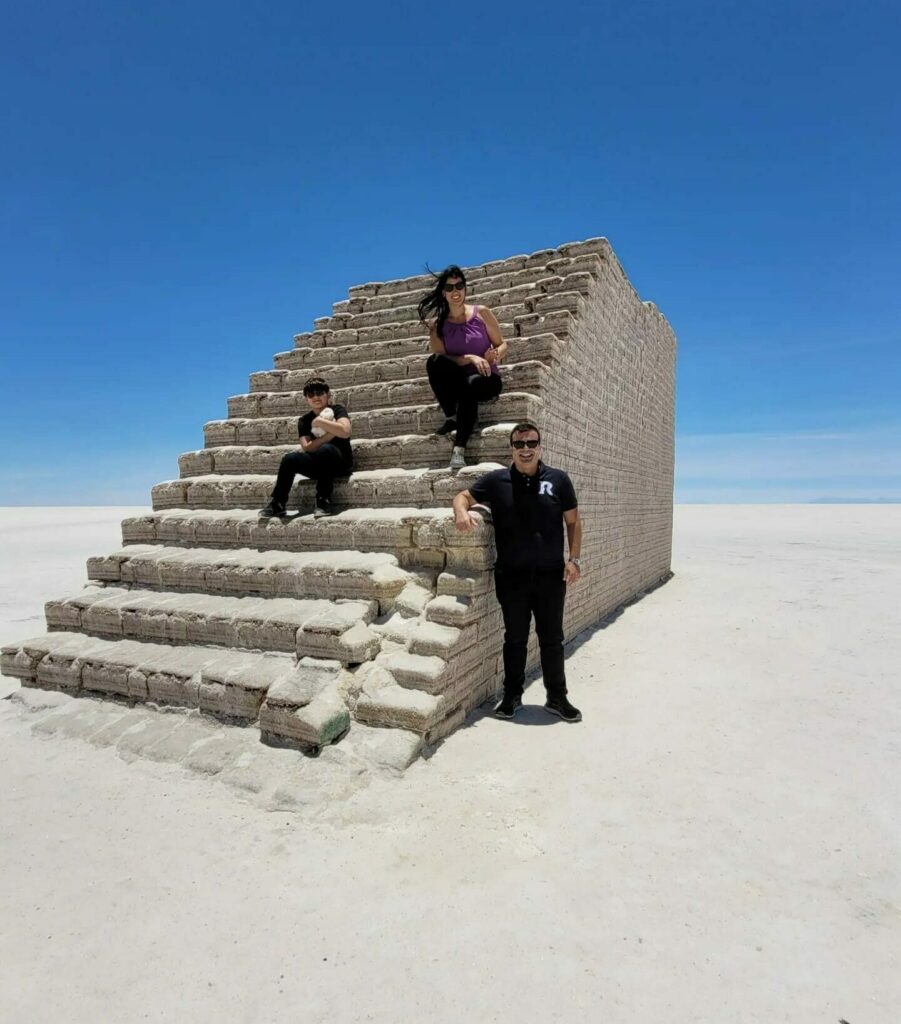
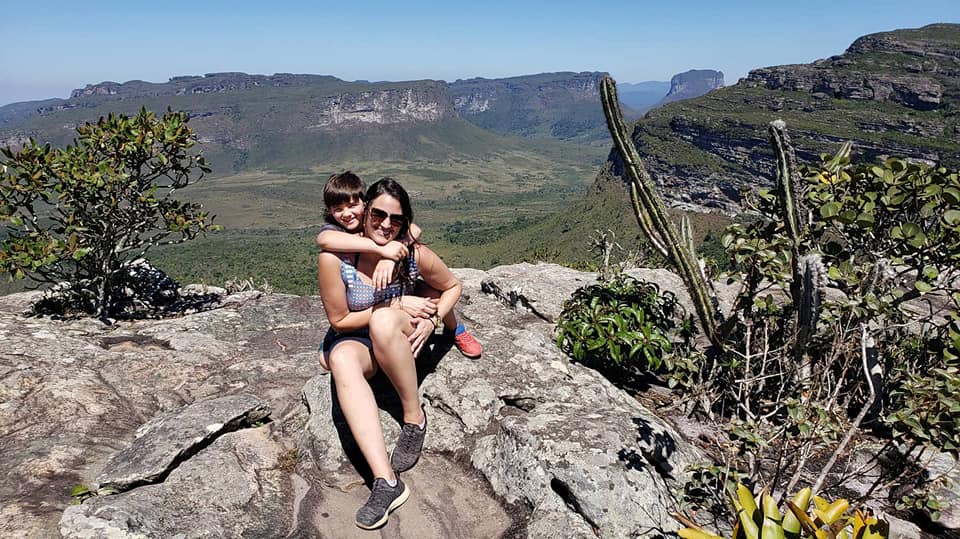
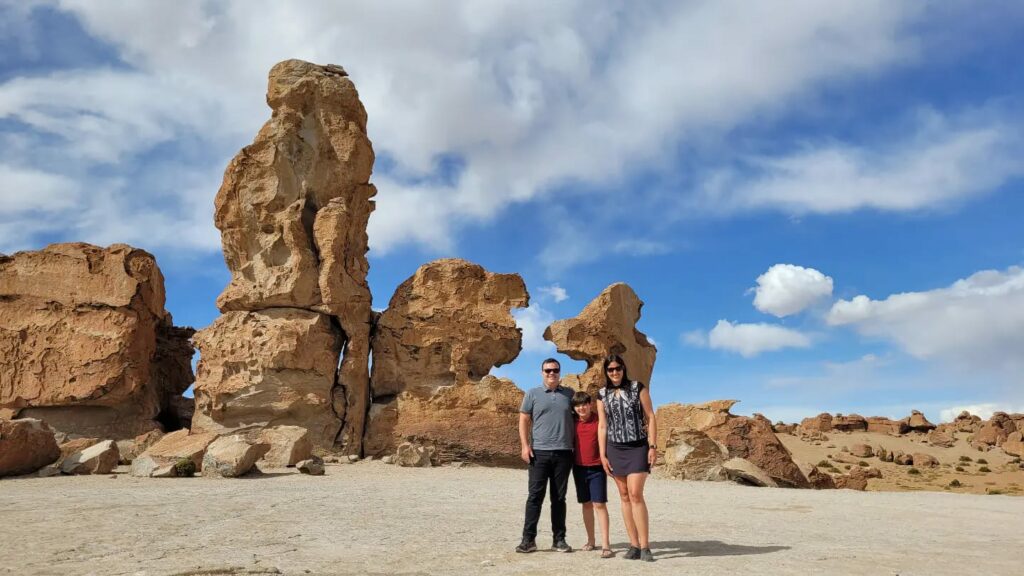
Photo 1: The family at the Salar de Uyuni / Photo 2: in the Chapada Diamantina / Photo 3: on a trail in the Atacama Desert
Acceptance and Celebration
Of course, things don’t always go as planned. This was the case for Debora Saueressig, coordinator of the NGO Lagarta Vira Pupa, who had to cut short her vacation because her son with ASD showed rigidity and no longer wanted to stay at the destination.
Or journalist Maria Karina, whose daughter Antônia, also autistic, fell ill during the vacation and ended up in the hospital because she stopped eating.
These are things every family fears, but in the case of atypical children, they become even more concerning and require much more careful planning for the trip, including good travel health insurance and emergency financial planning, which, by the way, every traveler needs in case of unexpected events.
Still, we stand by these families who believe that diagnosis is not destiny and that it’s always worth trying, fighting, even though we know it requires immeasurable energy and strength. Even though it’s difficult, there’s nothing like taking it one day at a time, with a lot of patience and love.
It’s worth showing new things, opening up the world of sensations, knowledge, textures, and flavors…
It’s even worth transforming, as happened with the De Paoli family, who changed their leisure style to adapt to their son.
All these small and big steps lead to progress, and within this process, traveling is also important and a great incentive for new realities. We have to celebrate the small victories, even when something goes wrong.
Destination Choice and Planning
Each family has its own particularities, difficulties, and restrictions, and we know that some of them make traveling to certain destinations unfeasible, especially those that are not yet prepared to accommodate people with disabilities (PCDs) or lack adequate support in case of emergencies. Therefore, a medical evaluation and thorough research of the location, restrictions, and emergency plans are essential.
Tourism is increasingly evolving to meet these demands, and you can read some articles we have already written that showcase what is available, including parks and hotels that have been awarded the Autism Friendly Company Seal.
The important thing is not to be deterred by limitations and difficulties but rather to open doors to explore the world with your family, no matter the challenge, and of course, to prepare well for it.
As writer and speaker Marcos Piangers says, the essential thing is to know, accept, and celebrate your child (see the interview here)! How about doing this by accepting your child, providing everything possible for their development, celebrating each achievement, but also occupying spaces that belong to the atypical? The child returns more developed, and family bonds are strengthened.
See the Machado family’s tip in the video below:
Services

Instagram accounts of travelers with children with disabilities:
@MariadeAntonia – Maria Karina is the mother of Antônia, who has ASD. Maria is a journalist and sensitively narrates the family’s daily life and all the small achievements of her daughter with beautiful writing.
@Deborasaueressig – Débora is the mother of Theodoro and Benjamin, the latter with ASD. She is a columnist for the NGO Lagarta Vira Pupa.
@jujueatrupe– Juju has Down syndrome and plays and travels a lot with her three siblings.
@viagensdeumacadeirante – A wheelchair user with cerebral palsy, microcephaly, and many miles traveled!
@uhultrip – Travels with three children, one of whom is a wheelchair user with cerebral palsy.
@papaiscadeirantes – A couple of wheelchair users with two daughters who enjoy their lives and travels.
@turismoadaptado – Ricardo Shimosakai uses a wheelchair, is passionate about tourism, and inclusion.
Some hotels certified to accommodate children with ASD (Autism Spectrum Disorder):
In Brazil
Hot Beach Resorts (SP)
Bourbon Atibaia Resort (SP)
Mavsa Resort (SP)
Cyan Resort (Itupeva)
Blue Tree Thermal de Lins (SP)
Hotel Jequitimar, Guarujá (SP)
Summerville Resort (PE)
Tivoli Ecoresort, Praia do Forte (BA)
Resort Cana Brava em Ilhéus (BA)
Pratagy Resort (AL)
Fazenda Park Resort (SC)
Bourbon Cataratas do Iguaçu (PR)
Caribbean
Beaches Resort
Travel agencies like “Viajar com Crianças” or “Viajar com Adolescentes” specialize in families, offering itineraries tailored to different age groups and destinations that go beyond the ordinary. While not specifically focused on travelers with disabilities (PCDS), having accommodated several families with various types of disabilities, they might still be able to assist your family.
Things the Way Family love to pack in their suitcase:
Gate
Eletronics for the travel: smartphone, drone, câmera, charger,…
Destiny
UV clothes, bikinis, caps, diving goggles, snorkel mask and other accessories…

